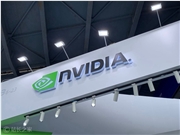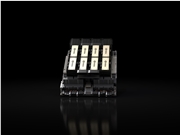NVIDIA is constructing a research and development supercomputer with a power capacity of 30 megawatts in northern Israel, with an expected investment of $500 million. This supercomputer is located in the Mevo'ot Yericho Technology and Industrial Park near Kiryat Shmona, covering an area of 10,000 square meters, and will house hundreds of the latest generation of Blackwell liquid cooling systems.

While the exact number of accelerators to be deployed is still unclear, Israeli media reports indicate that this configuration is expected to include "thousands" of graphics processing units (GPUs), with performance comparable to Israel's existing Israel-1 supercomputer. The Israel-1 supercomputer consists of 2,048 H100 accelerators and utilizes NVIDIA's Ethernet Spectrum-X series switches and super networking interfaces, achieving a peak scientific computing performance of 69 to 137 petaFLOPS and 8 exaFLOPS for AI applications.
In terms of chip performance, Blackwell offers a 2.5 times improvement in floating-point performance over Hopper at most precisions, and up to a 5 times improvement at 4-bit precision. Additionally, Blackwell provides higher memory bandwidth than its predecessor, with increases ranging from 1.66 to 2.38 times. Therefore, even with the same number of accelerators, the overall performance of the new facility is expected to surpass that of the Israel-1 supercomputer.
Construction of the system reportedly began last year and is expected to be operational in the first half of 2025. However, the newly implemented export control policies may impact NVIDIA's plans. According to the latest regulations, Israel will be classified as a Tier 2 country, with an import limit of 50,000 advanced GPUs from 2025 to 2027.
Nonetheless, since these new rules will take effect 120 days after being announced, and may be overturned if Trump is re-elected, NVIDIA may complete the remaining shipments within this timeframe. Furthermore, considering that this supercomputer will primarily be used for internal research and development, it may be exempt from these export restrictions.
Israel's close relationship with the United States means that the country has a significant opportunity to obtain "national verified end-user" status, which would increase the import limit to 320,000 accelerators. In this context, Israeli tech companies are concerned about these new regulations, believing they could affect their competitiveness in the rapidly evolving AI field.
Key Points:
🌐 NVIDIA is investing $500 million in Israel to build a 30 megawatt supercomputer, expected to be operational by 2025.
💻 The new system will feature thousands of Blackwell GPUs, surpassing the performance of Israel's existing Israel-1 supercomputer.
📜 Export control policies may impact NVIDIA's plans, but exemptions are anticipated to support research and development efforts.







